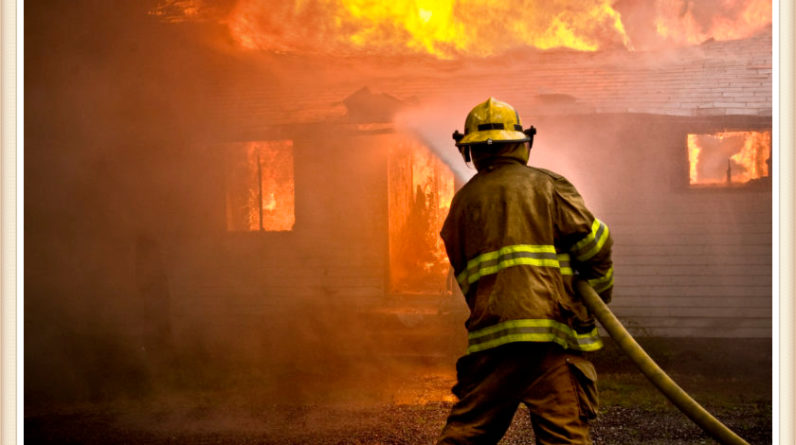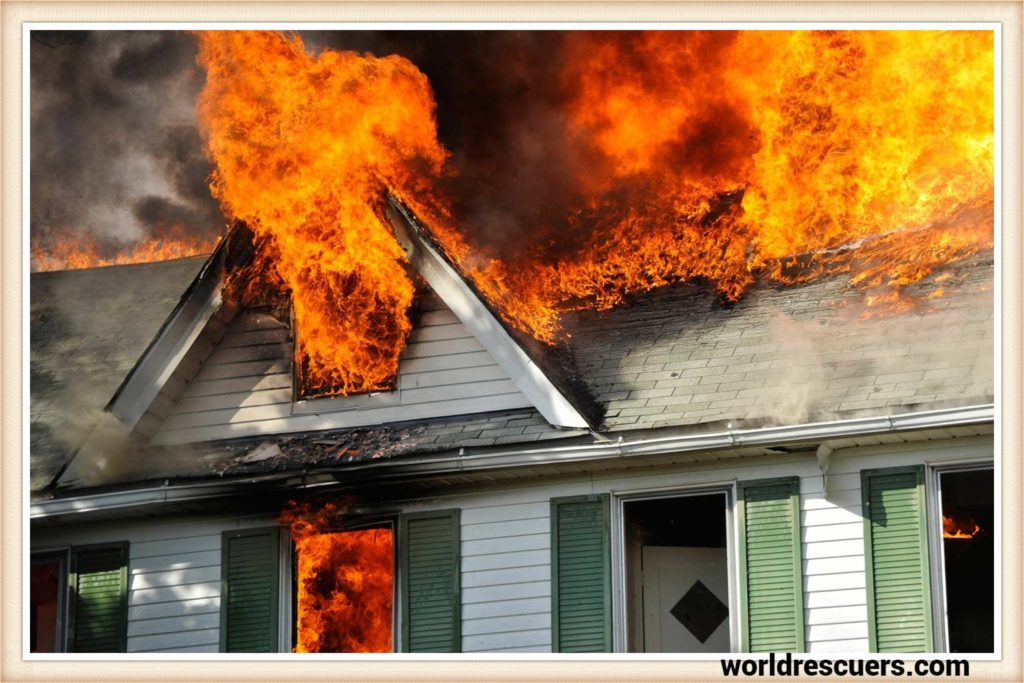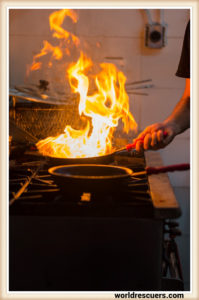
Do You Know the Leading Cause of House Fires?
When it comes to house fires, one culprit stands out as the leading cause: unattended cooking. The kitchen, often the heart of the home, can quickly transform into a danger zone if proper precautions are not taken. In this article, we will delve into the reasons behind cooking-related fires and provide valuable insights into prevention and safety measures to protect your home and loved ones.

Unattended Cooking: A Recipe for Disaster
Unattended cooking is a common scenario that can lead to devastating house fires. The combination of distractions, high heat, and flammable materials creates a volatile environment. Whether it’s a phone call, a knock at the door, or simply becoming engrossed in another task, leaving a hot stove or oven unattended significantly increases the risk of a fire outbreak.
Prevention: Ensuring Kitchen Safety
1. Stay Present and Alert
The simplest and most effective preventive measure is to stay in the kitchen while cooking. By being present and attentive, you can quickly respond to any potential issues that may arise.
2. Clear the Cooking Area
Keep flammable objects, such as kitchen towels, paper towels, and pot holders, away from the stovetop. Maintaining a clutter-free cooking area reduces the risk of accidental fires.
3. Manage Grease Buildup
Regularly clean cooking surfaces to prevent the accumulation of grease and food residue. Grease buildup can easily catch fire and spread rapidly.
4. Mind Your Appliances
Be cautious with appliances that generate heat, such as toasters and toaster ovens. Place them away from flammable materials and unplug them when not in use.
Safety: Navigating a Potential Fire Incident
Even with preventive measures in place, it’s essential to be prepared for emergencies. Here’s what to do if a cooking-related fire does occur:
1. Keep a Lid Handy
If a small grease fire ignites in a pan, cover the pan with a lid to smother the flames. Turn off the heat source and leave the lid on until the pan cools.
2. Utilize Baking Sheets and Oven Mitts
For oven fires, keep the oven door closed and turn off the heat. Baking sheets and oven mitts can be used to carefully slide over the flames and smother them.
3. Never Use Water on Grease Fires
Water should never be used to extinguish a grease fire. It can cause the flames to spread, intensify, and even lead to an explosive reaction.
4. Evacuate and Call for Help
If a fire becomes unmanageable or continues to spread, evacuate your home immediately. Call the fire department from a safe location and wait for professional assistance.

Creating a Safer Kitchen Environment
Preventing unattended cooking fires requires diligence and awareness. By staying vigilant, maintaining a clutter-free kitchen, and following proper cooking practices. You can significantly reduce the risk of cooking-related house fires. Additionally, having working smoke alarms installed in or near the kitchen provides an extra layer of safety, alerting you to potential fire hazards.
Remember, the kitchen is a place of creativity and nourishment, but it also demands respect for its potential dangers. By practicing preventive measures and knowing how to respond in case of a fire, you can ensure a safer and more secure cooking experience for you and your family.
which type of fire extinguisher is used for kitchen fire?
In the heart of every kitchen, the potential for fire exists. Understanding the specific risks posed by kitchen fires and equipping yourself with the right tools, such as Class K fire extinguishers, can mean the difference between a minor incident and a catastrophic blaze. Remember, fire safety is a shared responsibility, and by taking proactive measures, we can create a safer and more secure culinary environment.
FAQs
What is the #1 cause of house fires?
Where do most fires start in residential homes?
Why are there so many house fires in the US?
There are several factors that contribute to the occurrence of numerous house fires in the United States: Cooking Accidents, Electrical Issues, Heating Equipment, Smoking Materials, Candles and Open Flames, Flammable Liquids, Dryers, Lack of Smoke Alarms, Human Error, Arson and Negligence, Urbanization and Density, Aging Infrastructure, Lack of Fire Safety Education.
What is the biggest fire risk in the home?
The most significant fire risk in the home is often unattended cooking. Cooking-related incidents are a leading cause of residential fires, resulting from distractions, overheating, and other factors. Leaving a stove or oven unattended, even for a short period, can quickly escalate into a dangerous situation. The combination of high heat, flammable materials, and human error makes unattended cooking a substantial fire hazard.
Highly trained Assistant Fire Chief dedicated to public safety and awareness for the past 16 years. Effective leader who remains steady during times of emergency, while directing and motivating team members throughout crises.

